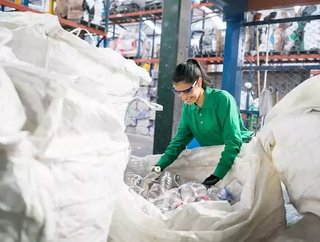How can you influence behaviours to drive change on sustainability issues?

Dr James Robey, Global Head of Environmental Sustainability, leads Capgemini’s sustainability programme across 40 countries and discusses his insight into driving engagement on sustainability issues.
Paul Polman, former CEO of Unilver, and Vice-Chair of the UN Global Compact, who received an award earlier this year for a lifetime achievement on sustainability, said: “No snowflake in an avalanche ever feels responsible - we all make a difference. Ultimately it is the collective efforts of all us individually that will change the world. Nothing has ever changed because of an organisation. It is because an individual stood up.”
As a business, our critical question is how do we create a culture where individual sustainable actions are normalised, and people are empowered to make a difference on problems that matter to them?
A three-pronged approach makes a long-lasting culture change
At Capgemini, we engage our leadership in a ‘top down approach’, creating a system that frames our sustainable actions. Examples include setting the framework through our ambitious carbon impact targets, agreeing funding for new technology to reduce travel, or simply setting new policy. We engage our different business units to align our sustainable strategy with their agendas to ensure a ‘holistic’ approach. Most critically, we strive to engage our key audience — our colleagues — by creating an environment where they can make sustainable choices at work every day, through an integrated approach, comprising of education, engagement and empowerment.
At the end of last year, we made a commitment to leverage our technology and change capabilities to help our clients save 10mn tonnes of carbon emissions. This is requiring a complete step-change in our business, embedding sustainable thinking into our services. We have applied exactly this three-pronged approach. Getting our board to commit to make technology for sustainability a business priority has paved the way for us to align country heads and sector leads and galvanise support from our internal functions like our university.
Step three has seen us accelerate our education and engagement process. While, in its early phase, signs are promising with nearly 2,000 people trained, rising participation in engagement activities like hackathons4good and more than 30 client carbon conversations.
To create change, we must tap into motivation
We have found several motivational considerations for our people. Some of the key ones for us have been:
- Making it personal: People want to make a difference, and they need to know their actions count. We reduced our office waste by 7% after a week-long campaign which highlighted the waste impacts of an individual person, every day in our offices.
- Incentivising change: Our travel programmes offer a range of incentives, including a scheme to encourage more fuel-efficient, low carbon lease cars. We also have rewards for fuel efficient driving and even free rail travel (including evenings and weekends) for employees within an overall mobility budget.
Making change unavoidable: When we first made a commitment to reducing our carbon impacts, we also embedded these commitments into a contract with a major government client. We also ‘persuaded’ our teams to recycle more by simply taking away all desk bins.
Normalising behaviour is a key part of the jigsaw
A behaviour change study carried out by the UK Government’s Behavioural Insights team focused on engaging people in reducing towel use in hotels. Different messages were used on the towel rack to encourage hotel guests to reuse their towel during their stay:

One of our persistent challenges is driving behaviour change to reduce our business travel impacts. We have managed to succeed through introducing a holistic travel programme with an entire gamut of measures that included personal monthly carbon statements and incentivising lower carbon travel using AI (artificial intelligence) to prompt sustainable alternative choices through online booking. Another measure that has seen success is using data analytics to identify the most frequently used flight routes, so that opportunities for low carbon alternatives can be investigated and communicated as well as simply providing credible alternatives to travel, with the investment in new collaboration technologies.
This sums up the key elements of what has been a successful ‘nudge campaign’ for us. We educated the organisation by raising awareness on the environmental impacts of travel and highlighted different travel options for them, as well as clearly explaining what our desired outcomes and actions from the programme were. However, in order to educate people, you have to ensure the travel programme has good visibility within the organisation or it could fall upon deaf ears. You must also make sure that the different actions you are asking of people are easy enough to do that it won’t impact their day-to-day routine.
We also work hard to make sustainability an engaging, community-building issue, igniting the passion of our people through discussions, hackathons and events. Our sustainability programme started with a few individuals from across Capgemini coming together to address climate change and other sustainability issues. Ten years later, and the need to continually challenge our thinking and engage with our colleagues is more critical than ever. Our ambition remains to ensure that sustainable thinking is embedded into all actions and is just the ‘way we do business’.






